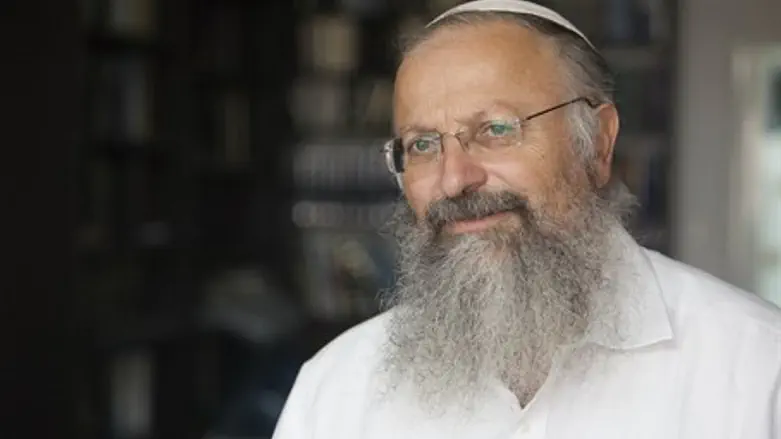
An hour before Knesset voted Wednesday on the new Enlistment Law, that would see hareidim drafted to the IDF, Chief Rabbi of Tzfat Rabbi Shmuel Eliyahu called on Jewish Home Chairman Naftali Bennett to give his party members freedom to vote as they saw fit.
Jewish Home slammed its MK Yoni Chetboun, threatening "serious consequences," after he announced Tuesday he would vote against coalition discipline and oppose the controversial law. Chetboun argued the law is "splitting Israeli society" and said he would vote his conscience.
Responding to the confrontation, Rabbi Eliyahu wrote to Bennett, saying "I ask of you and members of your party: show leadership and allow various members the freedom to vote as they choose."
Some may see irony in the Jewish Home's restriction of its members' right to vote according to their consciences, given that the party slammed coalition ally Yair Lapid's Yesh Atid party in January for being a "dictatorship" because it did not hold primaries. At the time, Bennett said "the Jewish Home party is a diverse party. There are many opinions, we aren’t a dictatorship like Yesh Atid.”
Yesh Atid has been a key initiator of the Enlistment Law. Rabbi Eliyahu supported Chetboun's charges that "Yesh Atid party has led a wave of anti-religious legislation," including using the current law to "beat the hareidi community."
The rabbi warned that such processes "weaken the position of the Rabbinate and the Jewish nature of the state of Israel."
Inclusive religious Zionism
In urging Bennett not to dictate the voting process, Rabbi Eliyahu wrote "one of the strengths characterizing the religious Zionist public and one of its important characteristics is the ability to include a wide variety of opinions, with the common denominator of faith, love of the Torah, participation in the idea of the country and the rights on the land of Israel."
The rabbi noted that many voters supported Bennett's Jewish Home because it brought together different religious Zionist movements, including the National Union party.
"It is clear to you that a large portion of your religious Zionist voters see an importance to sympathize with the pain of the (hareidi) Torah world, while they see a great importance in having the army and involvement in the job market," added Rabbi Eliyahu.
In closing, the rabbi warned against "calls to set apart religious Zionism, defining who is a religious Zionist and who isn't. We all are religious Zionists, we all love the Torah, we all love the army and the country."